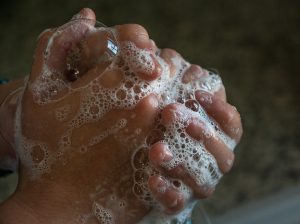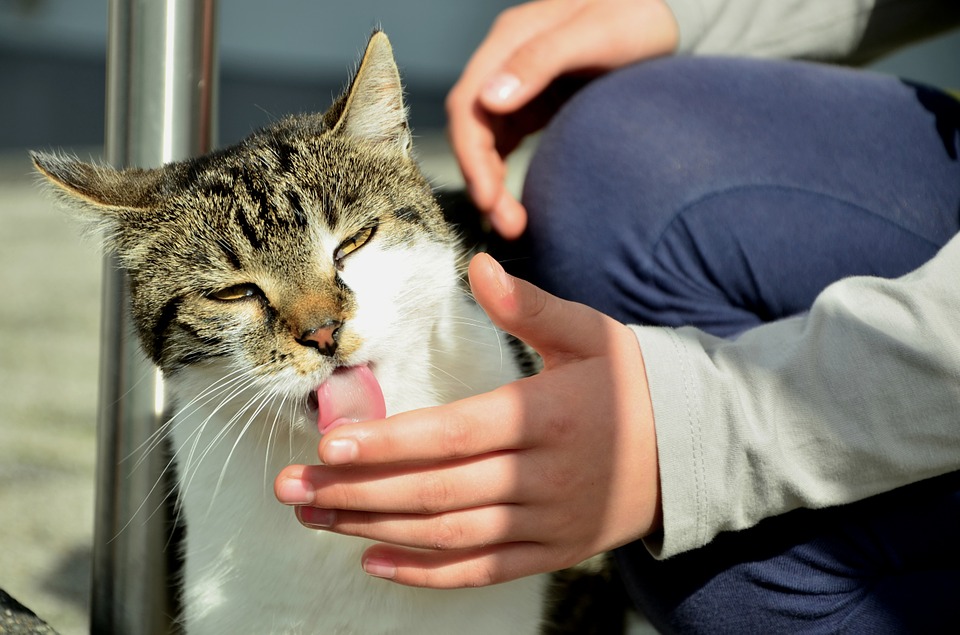The Amazing Influence of Washing Your Hands
The purpose of art is washing the dust of daily life off our souls. — Pablo Picasso
 How often do you wash your hands compared to others?
How often do you wash your hands compared to others?
A survey ran in 2009 found that approximately 50% of people wash their hands more than 10 times a day. Broken down by gender: about 62% of women wash their hands this frequently, while only 37% of men do the same.
But here’s the real question: What percentage of people wash their hands after using the bathroom?
Although results indicate about 90% of people do, I’m still not sure if “the glass” is 90% full or 10% empty…
According to the CDC, washing your hands is “one of the most effective ways to prevent the spread of germs.” However, did you know that washing your hands can have some truly impactful psychological effects, too?
WASHING AWAY THE GUILT

Amazingly, those who had recalled the unethical behavior were about twice as likely to choose the antiseptic wipe compared to those who wrote about the ethical behavior.
In another study, where participants were asked to recall only unethical behaviors, giving people an antiseptic wipe to wash their hands (vs. not receiving one) significantly reduced their feelings of regret, guilt, and shame about the past event. All from the simple physical act of washing their hands!
But sudsing one’s hands doesn’t just make you feel less sinful, it can also have a range of other effects, too…
WASHING AWAY THE LUCK
We all have that one pair of lucky underwear we never wash. Wait, you don’t? Okay, yeah, me neither…

Researchers had participants play a gambling game, where guessing which color ball would be drawn from a bag could win them extra money. For about half of the participants, they had good luck (i.e., they guessed the right color two times in a row), while the other half exhibited bad luck (i.e., they guessed the wrong color two times in a row).
Afterward, participants either washed their hands with a bar of soap or simply examined the soap without using it. Then, the researchers gave the participants another opportunity to make a gamble.
For those who experienced bad luck, washing their hands led them to bet about 45% more in the next gambling task. However, for those who had first experienced good luck, washing their hands led them to bet about 25% less in the next round. That is, whatever kind of luck a person was feeling, washing their hands tended to wash away those feelings of luck…
WASHING AWAY…WHAT NOW?

Washing your hands creates a psychological state of separation from one’s previous self.
The physical act of washing your hands separates the physical dirt and grime from your physical self. The mind, however, translates this act into the mental realm as well. Regardless if it’s the guilt from a past transgression, the luck you feel from a series of events, or even the disappointment of failure after a bad performance, washing yourself mentally separates oneself from those previous mental states.
So, if we return to my initial question for today’s post, my guess is that now you’ll be more prone to washing your hands—well, so long as you have a psychological state you’d like to have cleaned from yourself.
Cleanily,
jdt
Everyday Psychology: According to the CDC, you should be washing your hands for at least 20 seconds each time (try singing the Happy Birthday song twice to count this out). But could washing your hands for longer (vs. shorter) periods of time influence how much of the psychological state you “wash away?” And does taking a shower versus a bath versus simply washing your hands have different effects on your psychology? Other research (not discussed above but cited below) shows that when people lie over the phone, it’s mouthwash (and not hand soap) that makes them feel better, while lying over email it’s hand soap (and not mouthwash) that does the trick!
Lee, S. W., & Schwarz, N. (2010). Dirty hands and dirty mouths: Embodiment of the moral-purity metaphor is specific to the motor modality involved in moral transgression. Psychological science, 21(10), 1423-1425.
Lee, S. W., & Schwarz, N. (2011). Wiping the slate clean: Psychological consequences of physical cleansing. Current Directions in Psychological Science, 20(5), 307-311.
Xu, A. J., Zwick, R., & Schwarz, N. (2012). Washing away your (good or bad) luck: Physical cleansing affects risk-taking behavior. Journal of Experimental Psychology: General, 141(1), 26.
Zhong, C. B., & Liljenquist, K. (2006). Washing away your sins: Threatened morality and physical cleansing. Science, 313(5792), 1451-1452.








One Comment
Comments are closed.